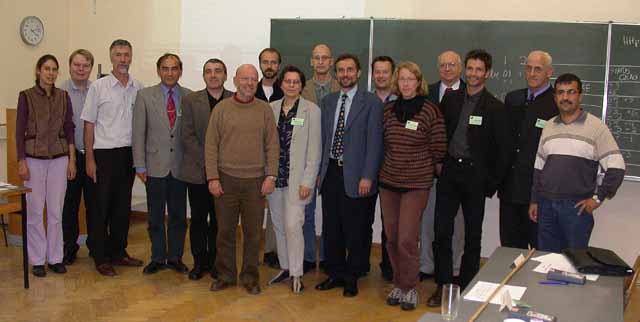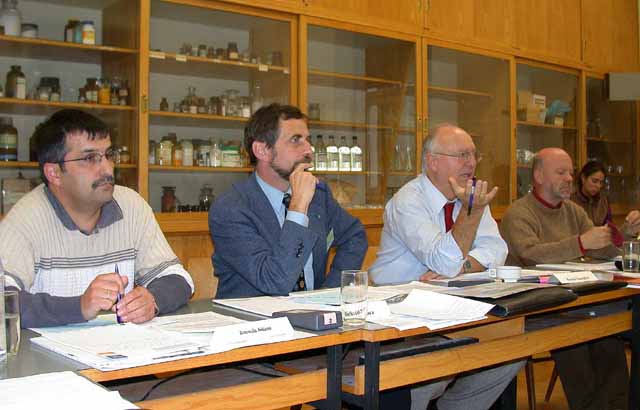The EU project CARBOMONT deals with the future of carbon budget in the European mountain areas, providing important bases for climate research. Overall co-ordination of this project comprising 15 partners from a total of 13 European countries is done by the University of Innsbruck (Department of Ecology, Institute of Botany). In order to build a bridge between science and practice local and regional stakeholders met the scientists at a round table this week. Together they elaborated future scenarios of landscape development in Tyrol.
Do forests bind more carbon than meadows? Which kind of management is better for the water budget: cutting or grazing? These questions are of major relevance for the future of the Alpine region, as the increase in carbon within the atmosphere contributes massively to global warming. Besides, an adequate management on mountain slopes can reduce the runoff through brooks and the risk of landslides and avalanches.
The land-use types characterising the Alpine landscape in the future, however, will also depend on the support policies for agriculture and forestry. In order to develop realistic future scenarios, Univ.-Prof. Dr. Alexander Cernusca (Department of Ecology, University of Innsbruck) and Dr. Neil Bayfield (Centre for Ecology and Hydrology, Scotland) invited local and regional stakeholders to a workshop this week. The list of guests invited to take part reached from landowners to experts in tourism, administration, agriculture and forestry. Together they would discuss the impact of different approaches in subsidy policy on agriculture in mountain landscapes. The main issue was the future relevance of agriculture, forestry, settlements and conservation areas, according to subsidies being directed mainly at agricultural production, land management or rural development in general.
Soon the experts agreed on many topics, while in other cases they reached a consensus after some discussion. In case of agricultural production or land management being subsidised, the stakeholders forecasted a decrease in area used for agricultural purposes. On the other hand settlements, tourist infrastructure, abandoned land and forest would increase in area. A rural development policy scenario, which according to the stakeholders would lead to variety in land use, was mainly assessed positively.
The forecasts will be used for research within the CARBOMONT project. The outcome of this project is then again to be discussed with the stakeholders. Both science and practice are to benefit from this dialogue in the future.
 |
A whole range of high level experts accepted the invitation (from left to right): Daniela Soier, Sascha Scharfs (Dept. of Ecology, University of Innsbruck), Neil Bayfield (Centre for Ecology and Hydrology, Scotland), Alexander Cernusca (Dept. of Ecology, University of Innsbruck), Peter Höller (Federal Forest Agency and Research Centre, Institute of Torrent and Avalanche Reseach), Sigbert Riccabona (Tyrolean Counsel for Environmental Affairs), Matthias Drösler (Dept. of Plant Ecology, University of Bayreuth), Ulrike Tappeiner (Dept. of Ecology, University of Innsbruck), Richard Dietrich (Austrian Association of Research on Agriculture), Richard Norz (Tyrolean Chamber of Agriculture), Erich Tasser (Area of Alpine Environment, European Academy Bozen/Bolzano), Gudrun Wallentin ("Zillertaler Hauptkamm" High Mountain Natural Park), Bernd Stampfer (Dept. of Industrial Law, Tyrolean Government), Dieter Stöhr (Tyrolean Forestry Authority), Johann Pfurtscheller (farmer and landowner at Kaserstattalm, Neustift im Stubaital) and Johann Jenewein (Dept. of Agriculture, Tyrolean Government).

The workshop was characterised by vivid discussion (from left to right): Johann Jenewein (Dept. of Agriculture, Tyrolean Government), Richard Norz (Tyrolean Chamber of Agriculture), Bernd Stampfer (Dept. of Industrial Law, Tyrolean Government) and Sigbert Riccabona (Tyrolean Counsel for Environmental Affairs).
![]()